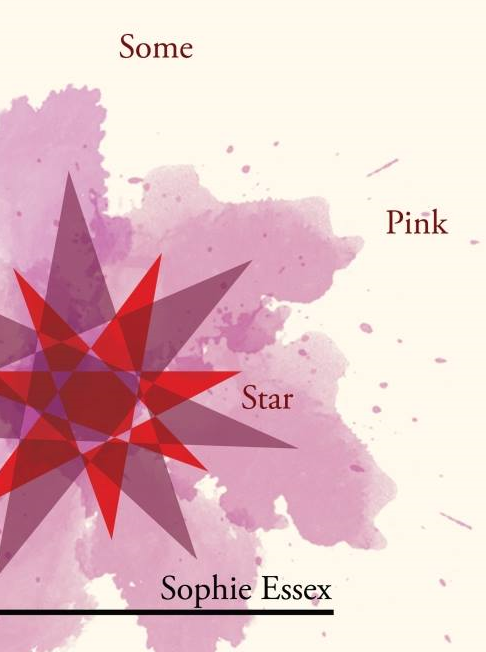
Sophie Essex is a powerhouse of Norwich poetry. Often seen promoting events on the Norwich Poetry Group on Facebook, and manning the monthly Volta open mic nights at the Birdcage Pub. I eagerly awaited the chance to see her poetry stand out on its own. Her new chapbook ‘Some Pink Star’ explores the physical embodiment and embroilment of relationships. She uses sparse, purposefully disintegrated poetry to muster up a sense of confusion, and ‘bruises’ her poems with dark themes blithely explored. Manipulation, coercion, romantic apathy and disgust sitting alongside more ‘docile love’ (as described in Bubblegum, one of the best poems in the collection.)
Her writing shines when she lightly employs the contrasts in her work. The use of colloquial language in the middle of more philosophical writing gives an earthier, characterised feeling to poems that might otherwise remain too stylishly vague. Essex knows how to construct such short poems well, but there are moments where it seems she’d be better served by a larger variation in length.
While Vanilla Sky is frustratingly brief, Violet Volcanoes, just a page over, uses its form to perfect effect.
The brevity is best employed to make her heady metaphors pack more weight, anchoring them in something real. Otherwise they can sometimes overlap each other too voraciously. It’s hard to separate what differentiates the better dreamy poems from the ones that leave your ‘head in the clouds.’ But the difference is palpable. Another problem is that sometimes the sexuality seems a little too on the nose, the contrast between sugary sweets and sex too sickly a simile. But again, when grounded in her techniques of repetition and invoking the so called ‘real world’, they shine.
These poems also have an oral texture, reciting themselves in your brain as you read them. There’s a great well of potential, especially with the longer form poems that manage to sustain the delicate balance of liminal and localised. Also worth mentioning is the sheer insight into human character she manages to serve. While the collection seems to have a more thematic than narrative thread, the human aspect to the poems manages to be both relatable and insightful.
All in all, however, it’s a collection of brilliant, often piercing lines – which aren’t always best served by the poems around them.

